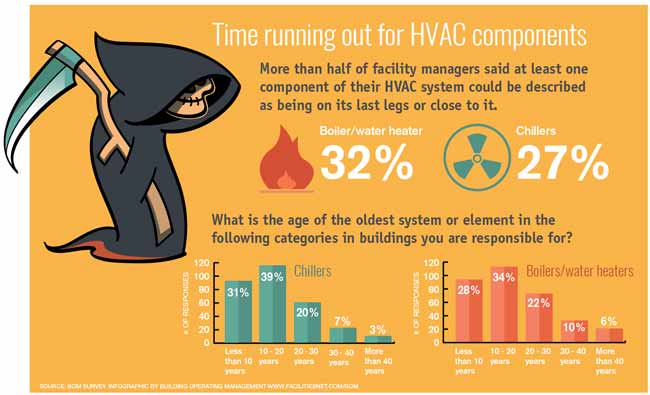5 Indicators That It's The Right Moment To Upgrade Your Household Home Heating And Cooling System
5 Indicators That It's The Right Moment To Upgrade Your Household Home Heating And Cooling System
Blog Article
Personnel Writer-Bagge Trevino
Is your home heating and air system on its last legs? Like a cars and truck that's seen far better days, your cooling and heating system can start showing signs of deterioration. However just how do you know when it's time to bid farewell to your old faithful and welcome in a brand-new, extra efficient design?
Well, my friend, if you have actually been observing your system constantly running, odd sounds wafting through the air, or an abrupt increase in your energy expenses, then it may be time to take into consideration a substitute. Yet that's not all-- there are a couple of various other indicators that you will not wish to miss.
So, bend up and prepare to find the indications that could be a game-changer for your home comfort.
Constantly Running or Never Ever Biking off
If your home heating and air system is frequently running or never ever biking off, there may be a breakdown that needs prompt attention. This issue can show a few different troubles with your system.
One opportunity is that the thermostat isn't functioning appropriately, creating it to constantly signal for the system to run.
An additional potential cause could be a stopped up air filter, avoiding proper air flow and causing the system to function more challenging and longer.
Additionally, a malfunctioning fan or blower motor can additionally be the culprit, maybe unable to successfully circulate air throughout your home.
No matter the precise reason, it's important to address this issue promptly to avoid additional damage to your system and to make certain optimal power performance.
Weird Sounds or Uncommon Scents
You might see weird sounds or uncommon smells originating from your home heating and air system. These indications can suggest that it's time to change your system.
Below are some feasible factors for these strange noises and smells:
- Rattling or banging sounds: This can recommend loose or damaged elements within the system, such as a motor or follower. It is necessary to address this problem without delay to stay clear of further damage.
- Moldy or musty scents: This can indicate the presence of mold or mildew within the system, which can influence your interior air quality. It's essential to resolve this concern as it can lead to breathing problems.
- Burning or metallic smells: This could be an indication of overheating or electric concerns. It's necessary to take prompt activity to avoid any possible fire hazards.
If you discover any one of these indicators, it's advised to speak with a specialist cooling and heating professional to examine your system and establish if substitute is required.
Inconsistent or Inadequate Heating/Cooling
Experiencing irregular or poor heating and cooling in your home can be a frustrating and unpleasant circumstance. It's important to have a reliable cooling and heating system that can maintain your home at a comfortable temperature level year-round.
If you find that your home isn't heating or cooling equally, with some spaces being too warm while others are too cold, it may be time to change your home heating and air system. Inadequate home heating or air conditioning can be caused by a variety of issues, such as a malfunctioning thermostat, clogged air filters, or a worn-out a/c device.
Regular Repairs and Breakdowns
When your heating and cooling system needs constant repair services and experiences break downs, it's a sign that it may be time to consider changing it. Continuously taking care of fixings can be irritating and pricey, and it is essential to recognize when your system is no longer trusted.
Right here are three reasons frequent repair work and failures ought to motivate you to consider replacing your home heating and air system:
- ** High repair work expenses **: Constant fixings can quickly accumulate, and you might find yourself spending even more money on repairing your system than it's worth.
- ** Reduced Air conditioning repair **: Older systems often tend to come to be much less efficient with time, bring about higher power bills and wasted power.
- ** https://finnngujx.creacionblog.com/24541060/important-inquiries-to-ask-before-working-with-a-home-heating-and-air-contractor **: If your system is frequently breaking down, you might experience temperature level fluctuations and pain in your house.
Considering these variables, it deserves exploring the option of changing your system to save money, enhance energy performance, and ensure constant comfort in your house.
Significant Increase in Energy Expenses
If your monthly energy bills have been steadily boosting, it may be a clear indicator that it's time to consider replacing your home heating and air system. As your heating and cooling system ages, its efficiency decreases, triggering it to work more challenging and eat more power. This can result in a substantial boost in your energy expenses.
Old and outdated systems might have worn-out components, such as electric motors, fans, or compressors, that require more power to operate appropriately. Additionally, leaking ductwork or bad insulation can lead to power loss, compeling your system to work also harder to maintain a comfy temperature.
Conclusion
If you're experiencing any one of these indicators with your home heating and air system, it's time to think about a replacement. Disregarding these concerns can lead to pain, higher energy bills, and frequent fixings.
As a matter of fact, did you understand that home heating and cooling accounts for about 48% of the power use in a typical united state home? By updating to a more efficient system, you can't only enhance your comfort yet likewise save on power costs.
Do not wait till it's far too late, act now and take pleasure in an extra trusted and cost-effective home climate.
